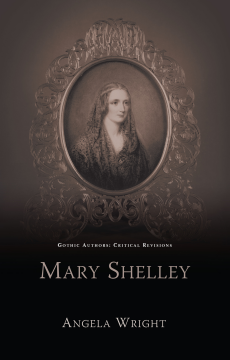
Additional Information
Book Details
Abstract
Mary Shelley reappraises the significance of Frankenstein alongside other works by Shelley which could be considered to revise the significance and fluctuating meanings of ‘Gothic’ during the Romantic period. It offers scholarly, fresh readings of the 1818 and 1831 editions of Frankenstein, as well as chapters upon the fiction that Shelley composed in between both editions, and during the same decade as its second edition.
In its broader examination of Mary Shelley’s work, this study is the first of its kind within the field of Gothic studies. Alongside sustained explorations of Frankenstein, Matilda, Valperga and The Last Man, the volume Mary Shelley reappraises some of the shorter essays and tales that the author composed for contemporary magazines. Angela Wright argues that the time is now right for a re-examination of the extent to which Shelley participated in and redirected the Gothic tradition.
Table of Contents
| Section Title | Page | Action | Price |
|---|---|---|---|
| Cover | Front Cover | ||
| Series Page | ii | ||
| Title Page | iii | ||
| Copyright Page | iv | ||
| Dedication | v | ||
| Contents | vii | ||
| Acknowledgements | ix | ||
| Mary Shelley: A Chronology | xi | ||
| Introduction | 1 | ||
| 1 Frankenstein, or the Modern Prometheus (1818) | 19 | ||
| 2 Testimonial and Refusal in Matilda (1819) | 53 | ||
| 3 Of Women, History and Romance in Valperga (1823) | 67 | ||
| 4 ‘On Ghosts’ and The Last Man: Mourning, Melancholia and Transformational Terror\r | 89 | ||
| 5 Terror, Horror and Transformation: The 1831 Edition of Frankenstein and the Short Stories for The Keepsake | 109 | ||
| Conclusion | 121 | ||
| Notes | 129 | ||
| Bibliography | 151 | ||
| Index | 163 | ||
| Back Cover\r | Back Cover |
